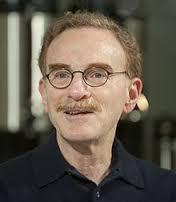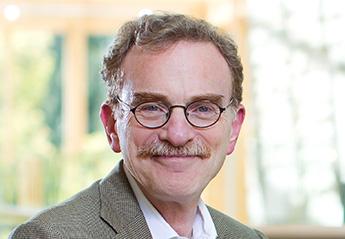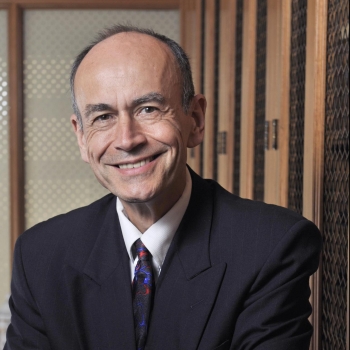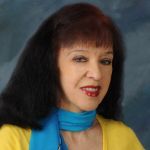Lena Live, July 24, 2014
Lena Live with Lena Miremonde and Julian Lampert and special guests, Prof. Dr. Thomas Südhof, Dr. James E. Rothman and Dr. Randy W. Schekman
Guest, Dr James E Rothman

James Edward Rothman (born November 3, 1950) is the Fergus F. Wallace Professor of Biomedical Sciences at Yale University, the Chairman of the Department of Cell Biology at Yale School of Medicine, and the Director of the Nanobiology Institute at the Yale West Campus. Rothman is also concurrently serving as adjunct professor of physiology and cellular biophysics at Columbia University. and a research professor at the Institute of Neurology, University College, London. Rothman was awarded the 2013 Nobel Prize in Physiology or Medicine, for his work on vesicle trafficking (shared with Randy Schekman and Thomas C. Südhof). He has also received many other honors, including the King Faisal International Prize in 1996, the Louisa Gross Horwitz Prize from Columbia University and the Albert Lasker Award for Basic Medical Research both in 2002.
Professor James Rothman, the Wallace Professor of the Biomedical Sciences at Yale University, is one of the world's most distinguished biochemists and cell biologists. He is Chairman of the Yale School of Medicine’s Department of Cell Biology and is the Director and founder of the Nanobiology Institute on Yale’s new West Campus. Rothman graduated from Yale College (1971) where he studied physics. He received his Ph.D. degree in biological chemistry from Harvard (1976) and was a student at Harvard Medical School from 1971 to 1973. From 1976 to 1978, he completed a fellowship in the Department of Biology at the Massachusetts Institute of Technology. From 1978 to 1988, he was a professor in the Department of Biochemistry at Stanford University. Dr. Rothman was the E.R. Squibb Professor of Molecular Biology at Princeton University (1988-1991). He founded and chaired the Department of Cellular Biochemistry and Biophysics at Memorial Sloan-Kettering Cancer Center (1991-2004), where he held the Paul A. Marks Chair and served as Vice-Chairman of Sloan-Kettering. Prior to coming to Yale in 2008, Dr. Rothman was the Wu Professor of Chemical Biology in the Department of Physiology and Cellular Biophysics, and Director of Columbia University’s Sulzberger Genome Center.
Professor Rothman discovered key molecular machinery responsible for transfer of materials among compartments within cells, providing the conceptual framework for understanding such diverse and important processes as the release of insulin into the blood, communication between nerve cells in the brain, and the entry of viruses to infect cells. Numerous kinds of tiny membrane-enveloped vesicles ferry packets of enclosed cargo. Each type of vesicle must deliver its specialized cargo to the correct destination among the maze of distinct compartments that populate the cytoplasm of a complex animal cell. The delivery process, termed membrane fusion, is fundamental for physiology and medicine, as pathology in this process can cause metabolic, neuropsychiatric and other diseases. Rothman reconstituted vesicle budding and fusion in a cell-free system (1984) and discovered the complex of SNARE proteins (1993) which mediates membrane fusion and affords it specificity. He also uncovered the GTPase-switch mechanism which controls coated vesicle budding in the cell (1991).
Rothman has also contributed to other fields. Together with Gero Miesenbock, he showed how patterns of synaptic activity in neural networks could be recorded optically using encoded synapto-pHlourins (1998). He discovered that hsp70’s are ATPases (1986) and peptide binding proteins (1989), thereby revealing how these molecular chaperones cycle on and off proteins to control their folding/unfolding. On theoretical grounds, he proposed (1981) that the role of the Golgi is to iteratively purify proteins, using its cisternae like plates in a distillation tower, an idea now implicit in all models of Golgi dynamics; and he provided the first evidence of sequential processing and vectorial transport across the stack (1981-1985). Rothman’s current research concerns the biophysics of membrane fusion and its regulation in exocytosis; the dynamics of the Golgi apparatus at super-resolution; and the use of bio-inspired design in nanotechnology.
Dr. Rothman has received numerous awards and honors in recognition of his work on vesicle trafficking and membrane fusion, including the King Faisal International Prize for Science (1996), the Gairdner Foundation International Award (1996), the Lounsbery Award of the National Academy of Sciences (1997), the Heineken Foundation Prize of the Netherlands Academy of Sciences (2000), the Louisa Gross Horwitz prize of Columbia University (2002), the Lasker Basic Science Award (2002), the Kavli Prize in Neuroscience (2010), the Massry Prize (2010) and the EB. Wilson Medal (2010). He is a member of the National Academy of Sciences (1993) and its Institute of Medicine (1995), and a Fellow of the American Academy of Arts and Sciences (1994).
Guest, Dr Randy W Schekman

Biography from: https://en.wikipedia.org/wiki/Randy_Schekman
Randy Wayne Schekman (born December 30, 1948) is a Nobel Prize-winning American cell biologist at the University of California, Berkeley,[6] and former editor-in-chief of Proceedings of the National Academy of Sciences.[2][7][8] In 2011, he was announced as the editor of eLife, a new high-profile open-access journal published by the Howard Hughes Medical Institute, the Max Planck Society and the Wellcome Trust launching in 2012.[9] He was elected to the National Academy of Sciences in 1992.[10] Schekman shared the 2013 Nobel Prize for Physiology or Medicine with James Rothman and Thomas C. Südhof for their ground-breaking work on cell membrane vesicle trafficking.[5][11]
Schekman was born in Saint Paul, Minnesota, to Alfred Schekman, an electrical engineer and inventor.[12] He graduated from Western High School in Anaheim, California, in 1966.[13] He received a BA in Molecular Sciences from the University of California, Los Angeles (UCLA), in 1971. He spent his third year at the University of Edinburgh in Scotland, as an exchange student.[14][2] He received a PhD in 1975 from Stanford University for research on DNA replication working with Arthur Kornberg.[15] He was promoted to Associate Professor in 1984 and Professor in 1994.
Since 1991, Schekman has been a Howard Hughes Medical Institute Investigator,[16] Division of Biochemistry and Molecular Biology, Department of Molecular and Cell Biology, at the University of California, Berkeley. The Schekman Lab at that university carries out research into molecular descriptions of the process of membrane assembly and vesicular traffic[17] in eukaryotic cells[18][19] including yeast.[20] Before that, he was a faculty member with the now disbanded Department of Biochemistry at the same university.
In 2002, Schekman received the Albert Lasker Award for Basic Medical Research[21] and Louisa Gross Horwitz Prize of Columbia University along with James Rothman for their discovery of cellular membrane trafficking, a process that cells use to organize their activities and communicate with their environment.[22] He was awarded the Massry Prize from the Keck School of Medicine, University of Southern California, in 2010. Schekman is also a member of the Selection Committee for Life Science and Medicine which chooses winners of the Shaw Prize.
In 2013, he was elected a Foreign Member of the Royal Society. His nomination read:
Using a brilliantly conceived genetic screen, Schekman isolated sec mutants that accumulate secretory pathway intermediates, he cloned the corresponding genes and he established biochemical reactions that faithfully reproduced specific secretory pathway events. These studies transformed the secretion field, previously descriptive and morphological, into a molecular and mechanistic one. The cell-free reactions that Schekman established led to his isolation of the Sec61 translocation complex, the (COPII) vesicle coat complex, and the first purified inter-organelle transport vesicles. The Sec proteins are strikingly conserved and the trafficking mechanisms that Schekman discovered are at the heart of neurotransmission, hormone secretion, cholesterol homeostasis and metabolic regulation.[4]
Schekman, Thomas C. Südhof, and James Rothman were awarded the 2013 Nobel Prize for Physiology or Medicine "for their discoveries of machinery regulating vesicle traffic, a major transport system in our cells".[5] Schekman "has already said he will donate his share of the prize money, $400,000, to create an endowment for the Esther and Wendy Schekman Chair in Basic Cancer Biology at UC Berkeley. Schekman’s mother and sister, for whom the post is named, both died of cancer." [23]
In December 2013, Schekman called for academic journal publishing reform and open access science publication by announcing that his lab at the University of California, Berkeley would no longer submit to the prestigious closed-access journals Nature, Cell and Science, citing their self-serving and deleterious effects on science.[24] He has criticized these journals for artificially restricting the number of publications accepted to drive up demand.[24] In addition, Schekman says the journals accept papers that will be cited often, increasing the prestige of the journal, rather than those which demonstrate important results.[24] Schekman has said the prestige and difficulty of publishing in these journals sometimes cause scientists to cut corners or pursue trends, rather than conduct research on important questions. Schekman is the current editor of eLife, an open access journal and competitor to Nature, Cell, and Science.[24] Papers are accepted into eLife based on review by working scientists.[24] Access to accepted papers is free.[24]
Guest, Dr Thomas C Sudhof

Biography from: https://en.wikipedia.org/wiki/Thomas_C._S%C3%BCdhof
Thomas Christian Südhof (born December 22, 1955) is a German-American biochemist well known for his study of synaptic transmission. Currently, he is a professor in the School of Medicine in the Department of Molecular and Cellular Physiology, and by courtesy in Neurology, and in Psychiatry and Behavioral Sciences at Stanford University.
He is the co-awardee of the 2013 Nobel Prize in Physiology or Medicine (with James Rothman and Randy Schekman) for work on vesicle trafficking.
A German native, Südhof was born in Göttingen in 1955. He spent his childhood in Göttingen and Hannover, and was a graduate from the Hannover Waldorf School in 1975. Südhof studied medicine at the RWTH Aachen University, Harvard University, and then the University of Göttingen where, in 1982, he obtained his M.D. The same year, Südhof finished work on his doctoral thesis, in which he described the structure and function of chromaffin cells, at the Max Planck Institute for Biophysical Chemistry in the lab of Victor P. Whittaker. After a brief postdoctoral fellowship in Whittaker’s lab, Südhof moved to the United States in 1983, where he began postdoctoral training in the department of molecular genetics at the University of Texas Health Science Center (now the UT Southwestern Medical Center) in Dallas, Texas, under the supervision of Michael Stuart Brown and Joseph L. Goldstein.
During his postdoctoral fellowship, Südhof worked to describe the role of the LDL receptor in cholesterol metabolism, for which Brown and Goldstein were awarded the Nobel Prize in Physiology or Medicine in 1985. Südhof finished his postdoctoral training in 1986 and was made an investigator of the Howard Hughes Medical Institute. He was also given his own laboratory at UT Southwestern Medical Center where he focused on the Presynaptic Neuron for over 20 years.
In 2008, Südhof moved to Stanford University and is currently the Avram Goldstein Professor in the School of Medicine as well as a Professor of Molecular & Cellular Physiology, Psychiatry, and Neurology.
He ascribed his powers of analysis and concentration to boyhood lessons with his bassoon teacher, Herbert Tauscher.
Lena Live

The Lena Live Radio Hour has been awarded sponsorship from Calvary Hospital.
We are honored by their support of our programming.
With the Lena Live Radio Hour—hosted by Prof. Lena Miremonde and produced by Julian Lampert—the world's most progressive voices come each week to our program to share the latest from the frontiers of science, medicine, the arts, politics, psychology, and economics.
Our guests have included Nobel Laureate Wolfgang Ketterle, Professor of Physics at MIT (Massachusetts Institute of Technology), New York State Senators Andrea Stewart-Cousins and Suzi Oppenheimer, the late UN Ambassador Jerome Shestack, and Carol Roth—CNBC contributor and New York Times Best-Selling Author.








